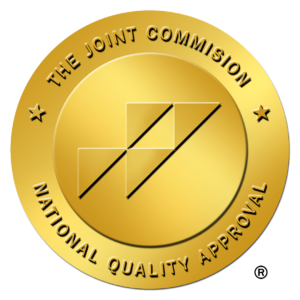Effective communication is the backbone of successful healthcare teams, and within this context, constructive feedback plays a pivotal role. In the high-stakes environment of healthcare, where collaboration and continuous improvement are essential, providing feedback that is both constructive and supportive can lead to enhanced performance, increased job satisfaction, and ultimately, better patient outcomes.
Establishing a Culture of Openness
Constructive feedback thrives in an environment where open communication is encouraged. Healthcare leaders should foster a culture that values feedback as a tool for growth rather than a critique. When team members feel comfortable expressing their thoughts and receiving feedback, it creates a foundation for continuous improvement and professional development.
Timeliness is Key
In healthcare, the timely delivery of feedback is crucial. Whether acknowledging a job well done or addressing areas for improvement, providing feedback promptly ensures that the information is relevant and actionable. This approach allows individuals to reflect on their performance while the details are still fresh in their minds, leading to more effective learning and adjustment.
Be Specific and Objective
Constructive feedback gains potency when it is specific and objective. Instead of vague or generalized comments, pinpoint the behavior or action that requires attention. Frame your feedback in terms of observable actions and their impact, steering away from personal judgments. This approach makes it easier for the recipient to understand the feedback and take concrete steps toward improvement.
The Feedback Sandwich Approach
One widely recognized method for delivering constructive feedback is the “feedback sandwich.” Begin with positive feedback or acknowledgment of strengths, followed by the area that needs improvement, and conclude with more positive reinforcement. This approach helps balance criticism with encouragement, ensuring that the recipient feels motivated to address areas for growth.
Encourage Self-Reflection
Empower healthcare professionals to engage in self-reflection by encouraging them to assess their own performance. Ask open-ended questions that prompt individuals to evaluate their actions and contributions critically. Self-reflection fosters accountability and encourages a proactive approach to personal and professional development.
Focus on Behavior, Not Personality
Separating the behavior being addressed from the individual’s personality is essential. Constructive feedback should never be a personal attack. By emphasizing specific actions or outcomes rather than making sweeping judgments about a person’s character, you create an atmosphere where individuals are more likely to accept and act upon the feedback provided.
Foster Two-Way Communication
Feedback is not a one-way street. Encourage recipients to express their perspectives and provide insights into their actions. Creating a dialogue allows for a deeper understanding of the feedback and promotes a collaborative approach to problem-solving. This two-way communication is instrumental in building trust and strengthening professional relationships within the healthcare team.
Set Clear Expectations
Feedback is most effective when expectations are clear. Healthcare professionals should comprehensively understand their roles, responsibilities, and performance expectations. This clarity provides a solid foundation for constructive feedback, as individuals can measure their actions against predefined standards, making the feedback more meaningful and actionable.
Follow-Up and Support
Constructive feedback should not be a one-time event. Regular follow-ups are essential to track progress, acknowledge improvements, and address lingering concerns. Offering ongoing support, resources, or training demonstrates a commitment to the individual’s success and reinforces the collaborative nature of the feedback process.
Emphasize a Growth Mindset
Encourage a growth mindset within the healthcare team by promoting the idea that abilities and skills can be developed over time through dedication and effort. This mindset shift fosters a positive approach to feedback, viewing it as an opportunity for learning and advancement rather than a criticism of inherent abilities.
Partner with Bluebird Staffing for New Talent
Mastering the art of constructive feedback in healthcare settings is an ongoing process that requires commitment, communication skills, and a genuine interest in the team’s professional development. Bluebird Staffing believes in constructive feedback as we work with our clients to find your organization’s best healthcare talent. Talk with our team today about how we can help your business.



